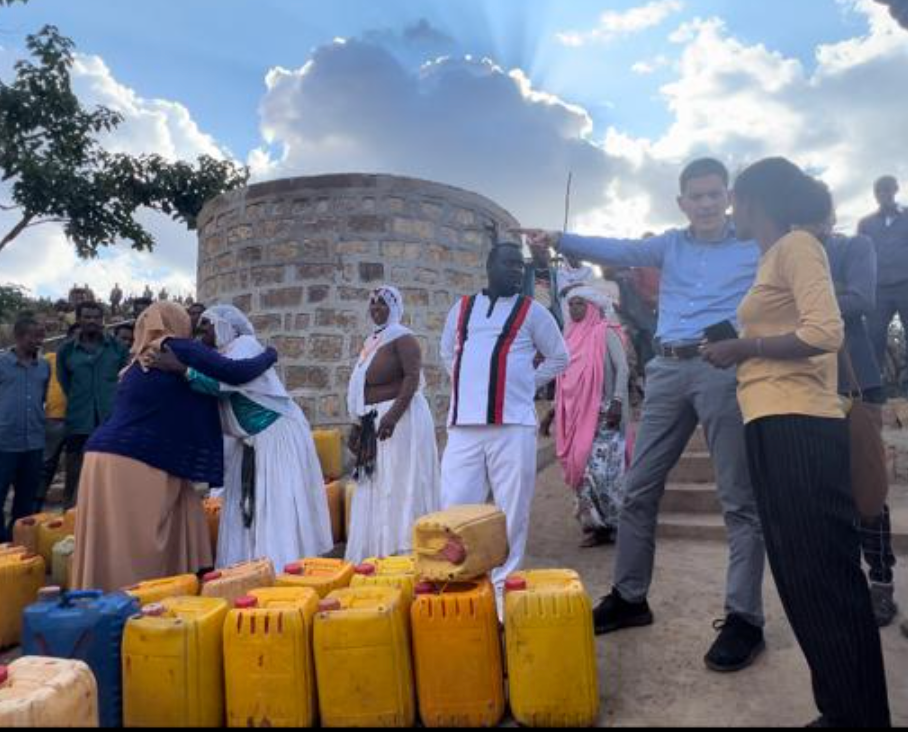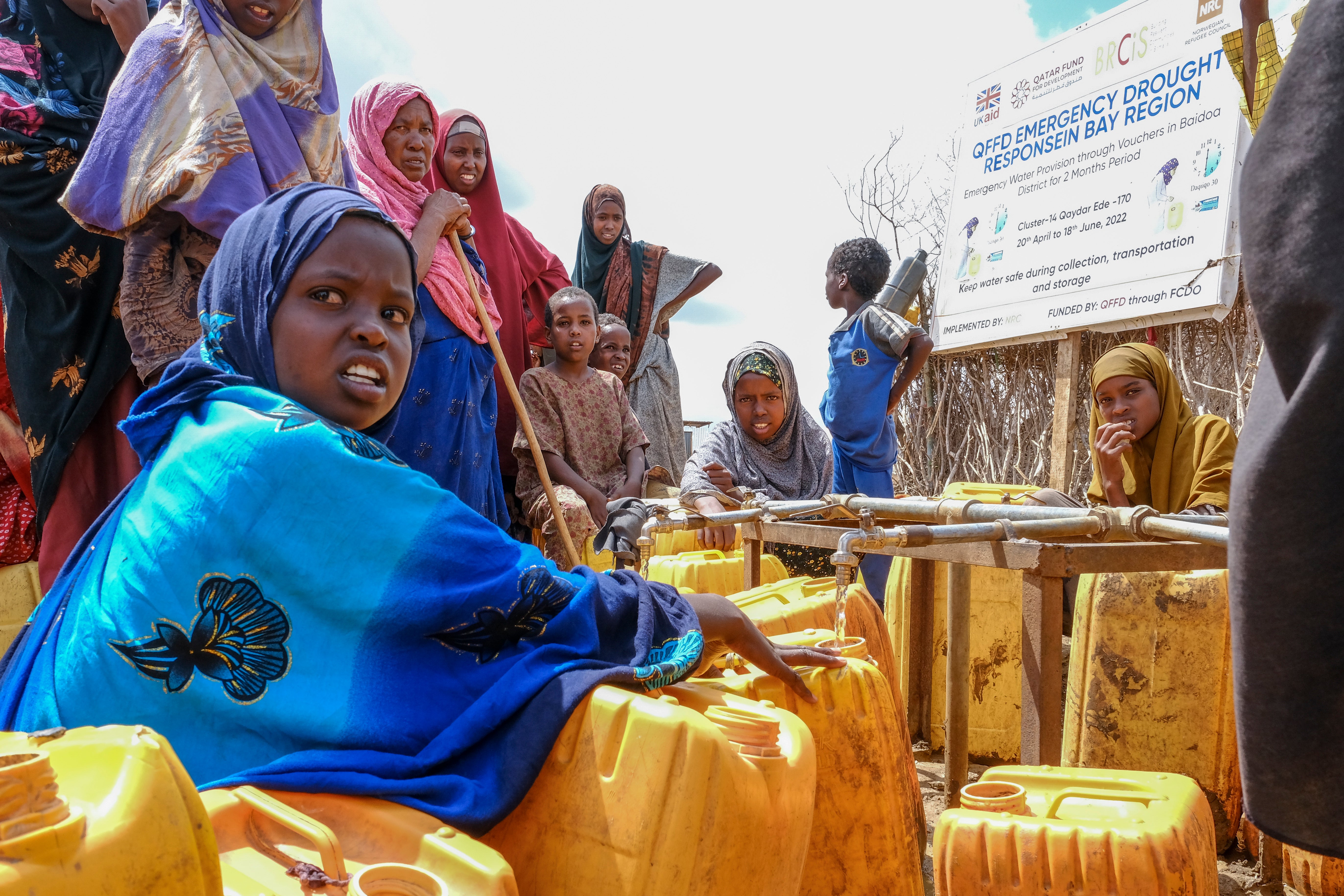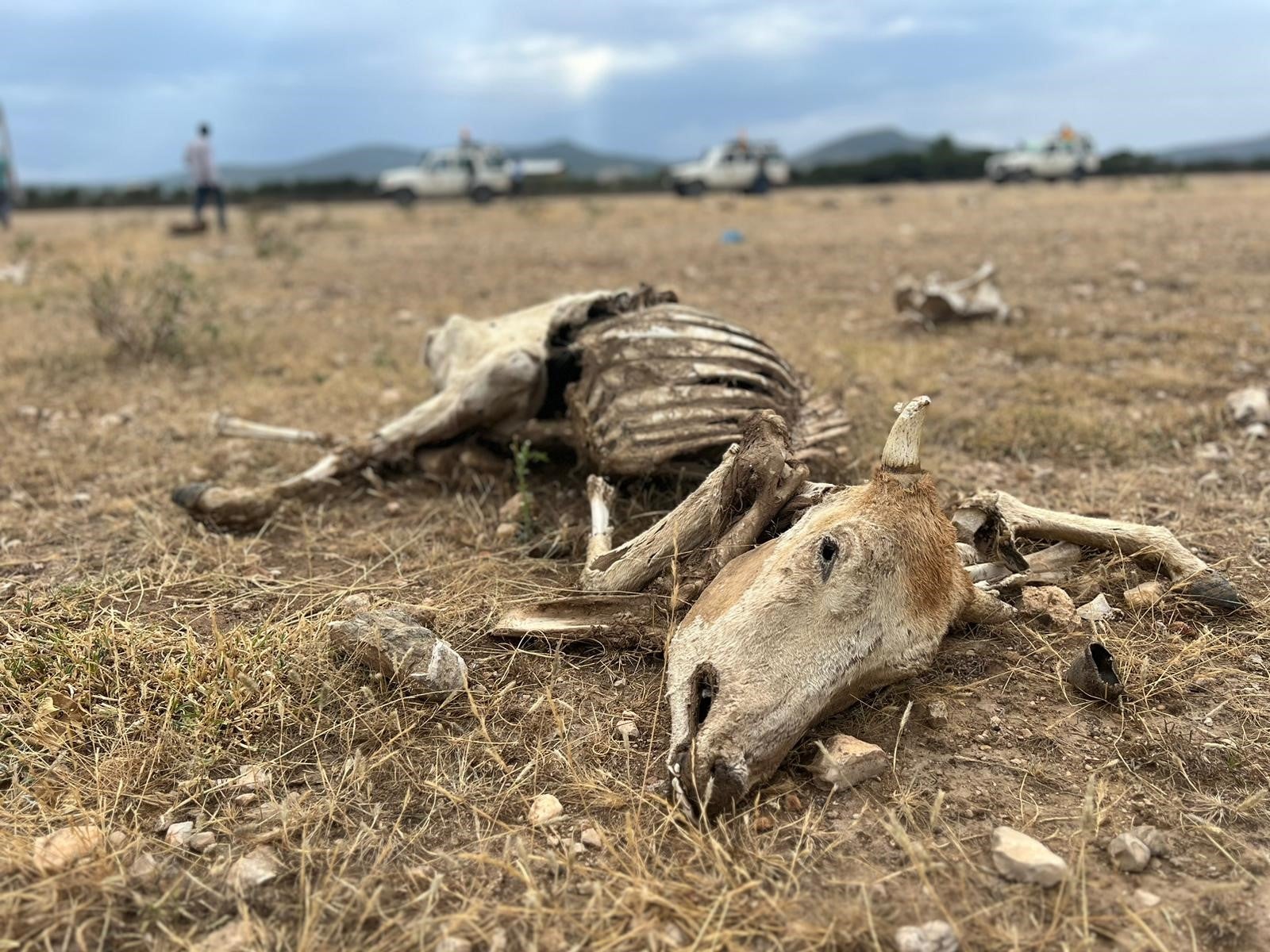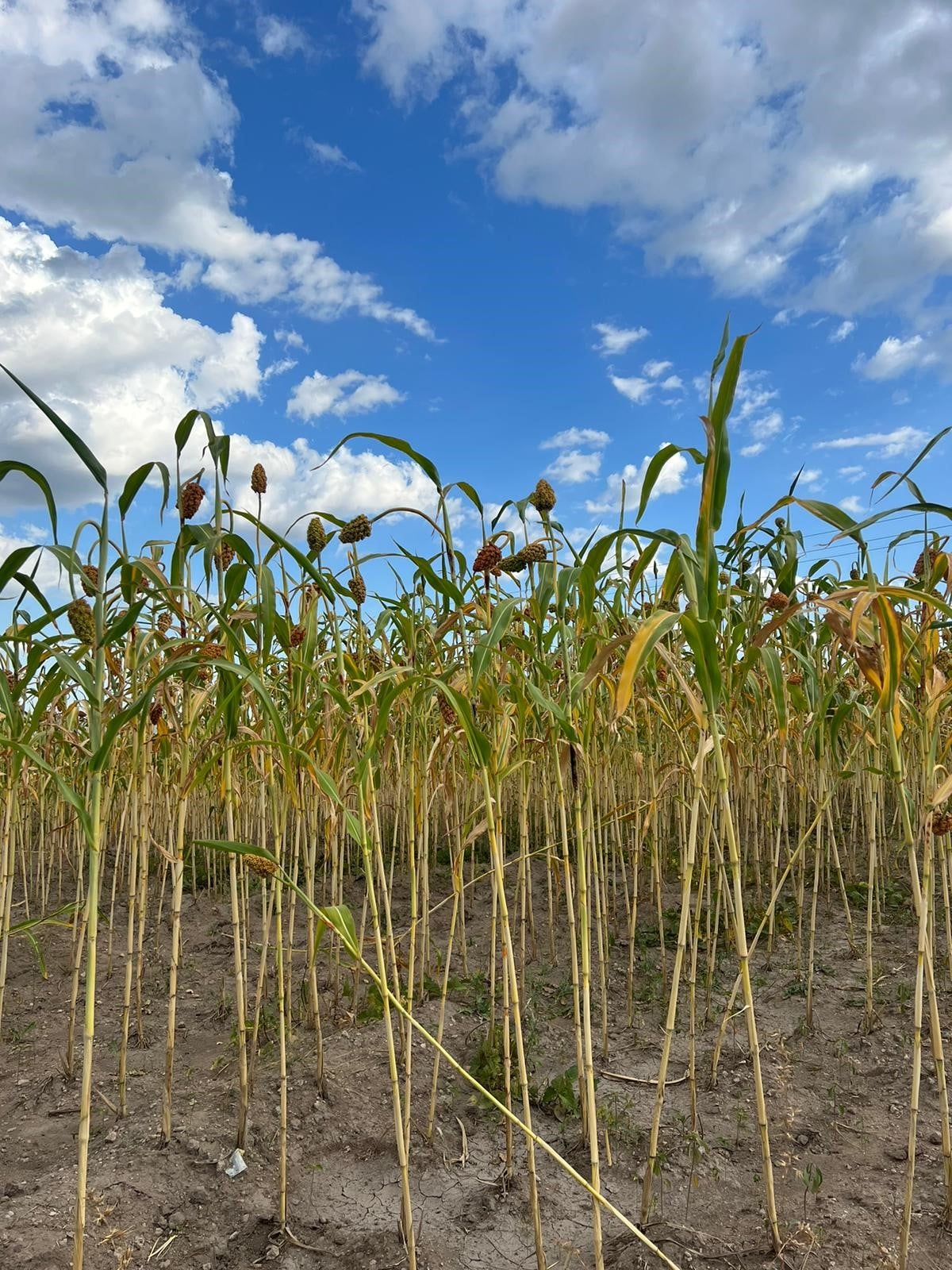UK failing to do its bit to tackle global hunger crisis, David Miliband warns
Exclusive: ‘The idea that we should wait until level five – which is famine – before taking action is just terrible,’ said the former minister
The world has looked away from the spiralling global hunger crisis for too long, David Miliband has warned, as the “telltale signs” of famine loom in East Africa.
During the first week of the Cop27 global climate summit, the president of the International Rescue Committee (IRC) travelled to East Africa to draw attention to a humanitarian disaster fuelled by a climate-driven drought.
Ethiopia, Somalia and Kenya are facing their longest-running drought in 40 years. Water sources are drying up, crops are failing, and cattle are dying in a place where agriculture and small-scale farming are the norm.
Humanitarian appeals are dangerously underfunded. In Ethiopia, a lack of money has meant that food rations for refugees have been cut in half. Of what international support there is, the overwhelming majority has come from the United States.
“The US, who take a whacking quite often and sometimes for good reason, are the only country who stepped up on this hunger crisis in East Africa,” Mr Miliband told The Independent. “The Americans are leading and no one is following.”
The war in Ukraine appears to have taught the US that they need to do more to support vulnerable places affected by the global hunger crisis, he said.
On the other hand, the United Kingdom has failed to provide financial support to East Africa, he added. “The lesson that the UK seems to have taken is to do less. That’s how you end up with the UK playing no effective role at this moment of real danger.”
Mr Miliband spoke on Wednesday from a “very bumpy road” in eastern Ethiopia, near the Djibouti border, dotted with local militia checkpoints. “This is an area where there is significant evidence of climate change,” he said.
He described the drive alongside fields of sorghum plants, a basic commodity in the region, which were emaciated and yellowed at the roots. The region is experiencing its fifth consecutive failed rainy season, according to the World Meteorological Organisation.


“There’s also the indirect effects,” he added. “The conflicts over territory in this part of the world are also conflicts over resources.”
East Africa is uniquely vulnerable to the global “poly-crisis” resulting from climate change, the pandemic, and the war in Ukraine, as it relies on Ukraine and Russia for 90 per cent of its wheat imports. Severe droughts also now happen more frequently, with three major events in the past decade.
This year, for the first time in its history, the IRC added an urgent crisis alert for East Africa to its emergency watchlist of countries most at risk of a new emergency or worsening humanitarian crisis.
Since that warning, the situation in Somalia, Ethiopia, and Kenya has worsened, with 21 million people facing starvation.
The situation is not yet a famine – as determined by the data-driven standards of classification needed for such a declaration – but a famine is on the horizon.


“In 2011, half of the 250,000 people who died did so before the famine was declared,” Mr Miliband noted. “There should be no hiding behind the idea that level three or four food insecurity is okay. The idea that we should wait until level five – which is famine – before taking action is just terrible.”
And local communities are keenly aware that their environment has become hostile, he said.

He related a conversation he had had with a woman in her thirties at one of the IRC’s village-run sustainable water projects. “She said, ‘I remember when the climate was different. I remember when the water pressure was higher.’
“What changed? Lake Haramaya is basically gone. It was a source of fishing and food. There’s a long-term trend here that is absolutely evident.”
Join our commenting forum
Join thought-provoking conversations, follow other Independent readers and see their replies
Comments


Bookmark popover
Removed from bookmarks